In addition to Weibo, there is also WeChat
Please pay attention

WeChat public account
AutoBeta


2024-07-27 Update From: AutoBeta autobeta NAV: AutoBeta > News >
Share
AutoBeta(AutoBeta.net)07/10 Report--
According to the latest data from the Federation of passengers, retail sales in the passenger car market in June 2023 were 1.894 million, down 2.6% from the same period last year, an increase of 8.7%. In the first six months of this year, retail sales in the passenger car market totaled 9.524 million, up 2.7% from the same period last year, and continued to grow month-on-month. This is the trend of month-on-month growth that has never been seen since the beginning of this century. The Federation said that in the first half of this year, the car market experienced an early Spring Festival, an abnormal promotion price war in March, some consumers waited for the promotion trend of National 6B, the recent launch of a large number of new products and low-cost new models, "618" promotion activities, and so on. Finally, the car market continued to be hot in mid-late June, which also led to a month-on-month rise in retail sales in the first half of the year.
In June this year, there was a large degree of reshuffle in China's auto market. According to the statistics of the Federation, the retail market share of independent brands was 49.3% in June, an increase of 6.7% over the same period last year. In sharp contrast, German and Japanese brands, as the support of mainstream joint venture brands, showed a decline in retail market share in June. German brands' retail share was 21.1%, down 1.6% from the same period last year; Japanese brands were 17.8%, down 3.7% from the same period last year American brands were 9.2%, down 0.9% from a year earlier.
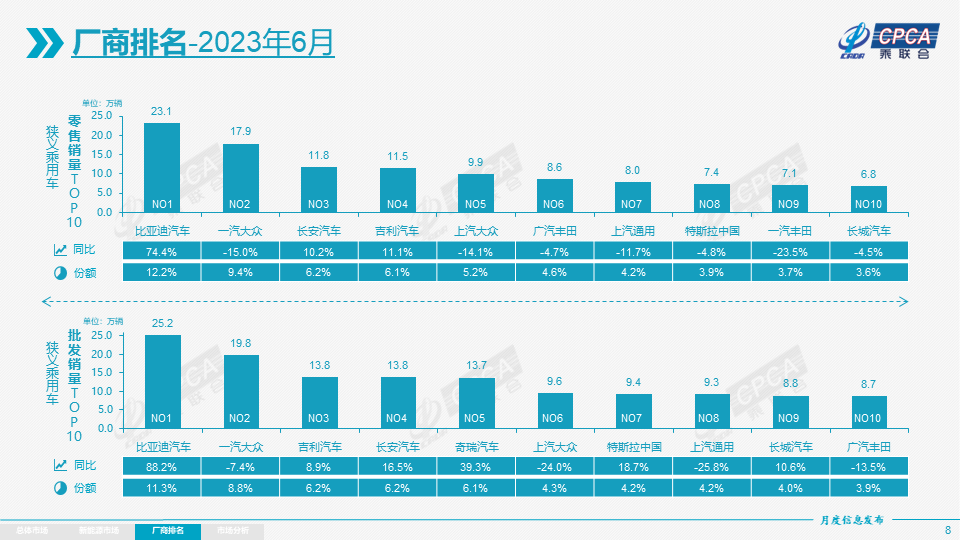
According to the data, retail sales of independent brands in the passenger car market were 930000 in June, up 14 per cent from a year earlier and 7 per cent from a month earlier, while retail sales of mainstream joint venture brands were 660000, down 19 per cent from a year earlier and up 6 per cent from a month earlier. Subdivided into major manufacturers, the top 10 car companies in June retail sales are BYD, FAW-Volkswagen, Changan Automobile, Geely Automobile, SAIC Volkswagen, Guangzhou Automobile Toyota, SAIC General Motors, Tesla China, FAW Toyota and Great Wall Motor.
Among the top 10 car companies on the list, four are self-branded car companies. Among them, BYD leads a group of independent joint venture brands with sales of 231000 vehicles, and once again becomes the top seller of passenger cars in China. Changan Automobile and Geely Automobile are ahead of other joint venture brands except FAW-Volkswagen, while Great Wall ranks 10th on the list with retail volume of 68000 vehicles, but down 4.5% from the same period last year. It is the only independent brand in the top ten car companies.
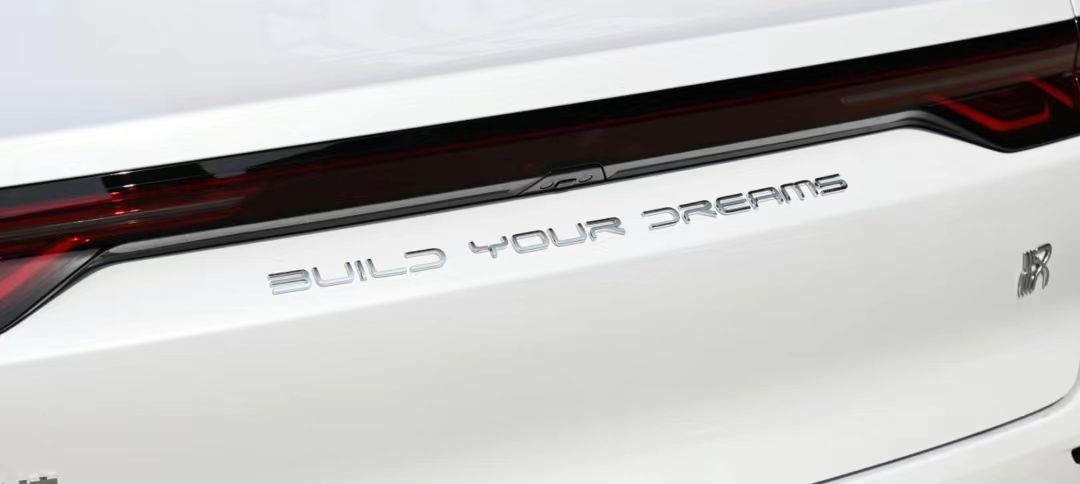
In contrast to joint venture brands, the mainstream joint venture brands in the June list showed a year-on-year decline. Among them, German car company FAW-Volkswagen was the only one in the top three to show a year-on-year decline, falling 15 per cent to 179000 vehicles, while SAIC-Volkswagen ranked fifth with 99000 vehicles, also down 14.1 per cent from a year earlier.
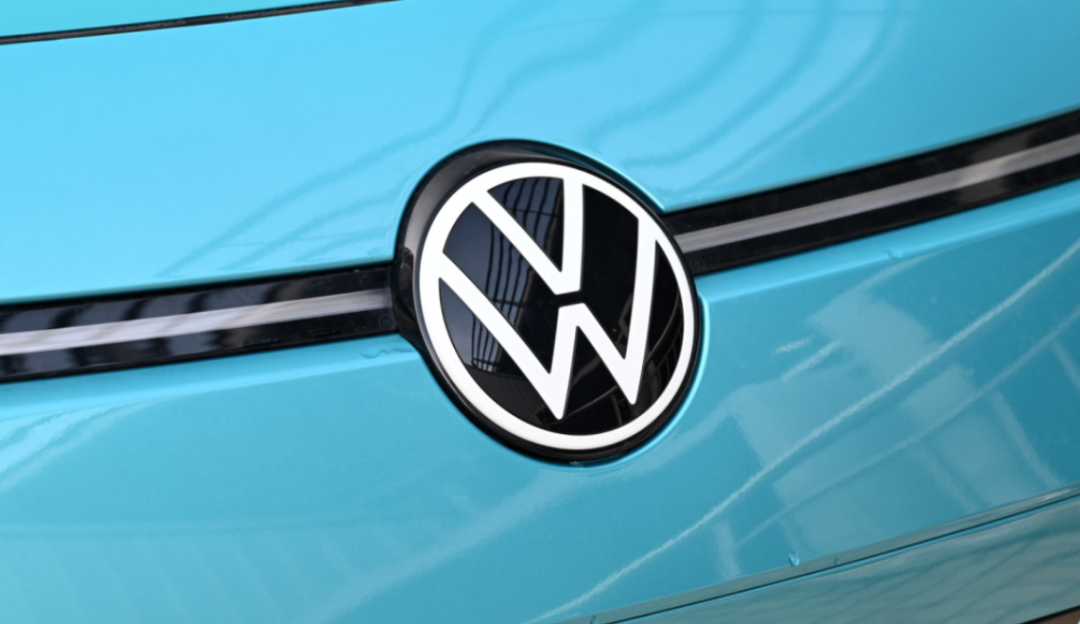
In addition to German, although Japanese brands Guangzhou Auto Toyota and FAW Toyota returned to the top 10 car companies in June, there was a downward trend to varying degrees. Among them, Guangzhou Auto Toyota ranked sixth on the list, down 4.7 per cent from a year earlier to 86000 vehicles. By contrast, FAW Toyota fell even more, falling 23.5 per cent to 71000 vehicles, making it the brand with the highest decline among the top 10 car companies on the list. Guangzhou Auto Honda, Dongfeng Honda and Dongfeng Nissan all fell out of the top 10. According to the Japanese manufacturers' sales list previously counted by Automotive Industry concern, Dongfeng Honda sold 47500 vehicles in June, down 32.4% from the same period last year. Dongfeng Nissan (including Nissan, Qichen and Infiniti brands) fell 29.5% year-on-year to 64800 vehicles. Obviously, the life of Japanese joint venture brands is not easy.
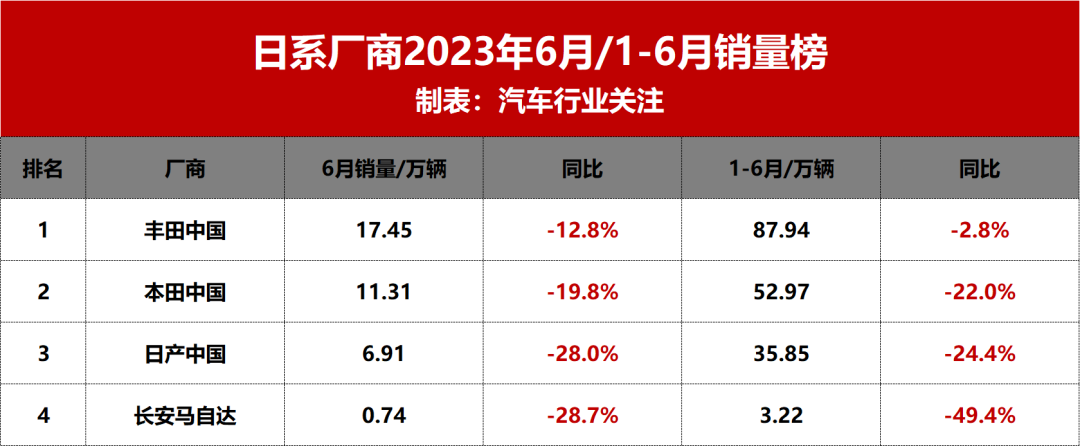
As for American brands, they can only rely on SAIC GM and Tesla in the Chinese market, but sales of both companies fell in June from a year earlier, with SAIC GM down 11.7 per cent to 80000 and Tesla's China sales down 4.8 per cent to 74000.
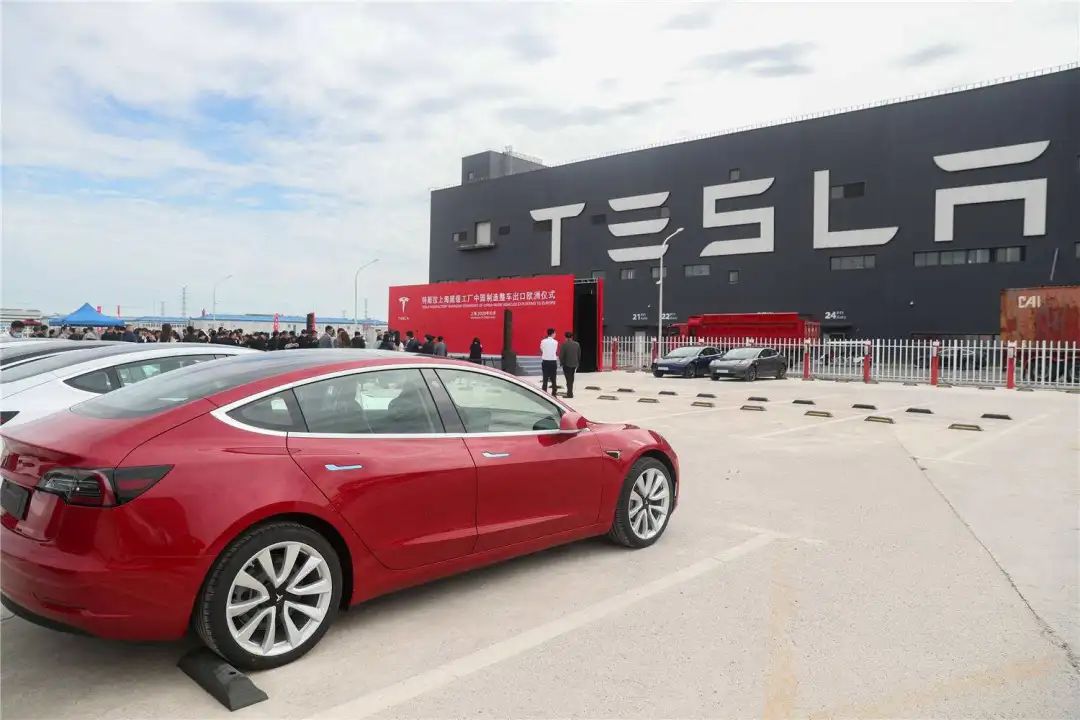
Judging from the ranking of domestic manufacturers as a whole, it is still independent brands that have performed well in June. "Automotive Industry concern" believes that the reason why independent brands can outperform joint venture brands such as Germany and Japan is largely due to the rapid growth of the new energy vehicle market. Retail sales of new energy vehicles in June were 665000, up 25.2% from a year earlier, 14.7% from a month earlier, and the retail penetration rate was 35.1%, according to the federation of passengers. Among them, the retail share of independent brand new energy vehicles is 69%, up 8% from the same period last year, and the market penetration rate is 58.8%, while the share of mainstream joint venture brand new energy vehicles is 4.8%, down 1.2% from the same period last year, and the market penetration rate is only 3.7%. From the perspective of the market share of each department, in the market environment of stock competition, brand differentiation has become more and more obvious, and German and Japanese brands need to layout the launch of new energy vehicle products more quickly if they want to keep their market share.
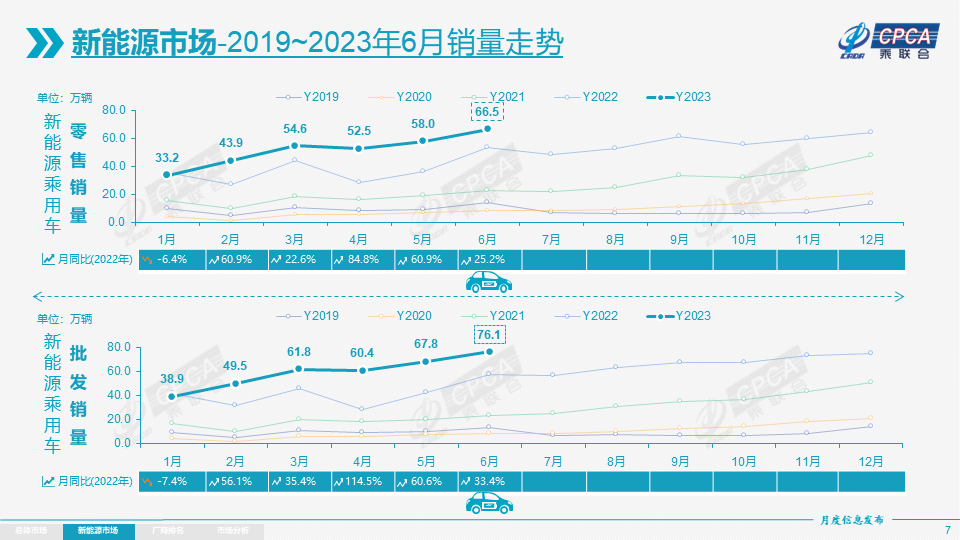
Stretching the time to the first six months of this year, from January to June this year, the cumulative retail sales of the domestic passenger car market was about 9.524 million, an increase of 2.7 per cent over the same period last year. Among them, independent brands were also the big winners, with a cumulative share of 50 per cent, up 4.2 per cent from the same period last year. Industry insiders believe that Chinese automakers will become the leading force in the global auto industry in the next few years, and local brands are expected to occupy 65% of the market share in China by 2030.
However, for the market performance in July this year, the Carriage Association said that there may be negative growth. The HKIFA pointed out that since the policy of halving car purchase tax was implemented on June 1 last year, the policy start-up period resonated with the purchase delay factor from March to June last year, resulting in an ultra-high base in July last year, which was not conducive to the year-on-year growth rate of the car market in July this year. Negative growth in July this year should be normal. In addition, as the car market enters the extended implementation period of National sixth B in July, the siphon effect of retail sales in old inventory last month may lead to a relatively stable period of production and sales in this month. The rapid rise in promotion prices in the first half of the year has ended, and July began to enter a period of gentle promotion growth, which is similar to the price trend in 2019, and the pull of promotion on the car market has weakened.
Welcome to subscribe to the WeChat public account "Automotive Industry Focus" to get the first-hand insider information on the automotive industry and talk about things in the automotive circle. Welcome to break the news! WeChat ID autoWechat
Views: 0
*The comments in the above article only represent the author's personal views and do not represent the views and positions of this website. If you have more insights, please feel free to contribute and share.









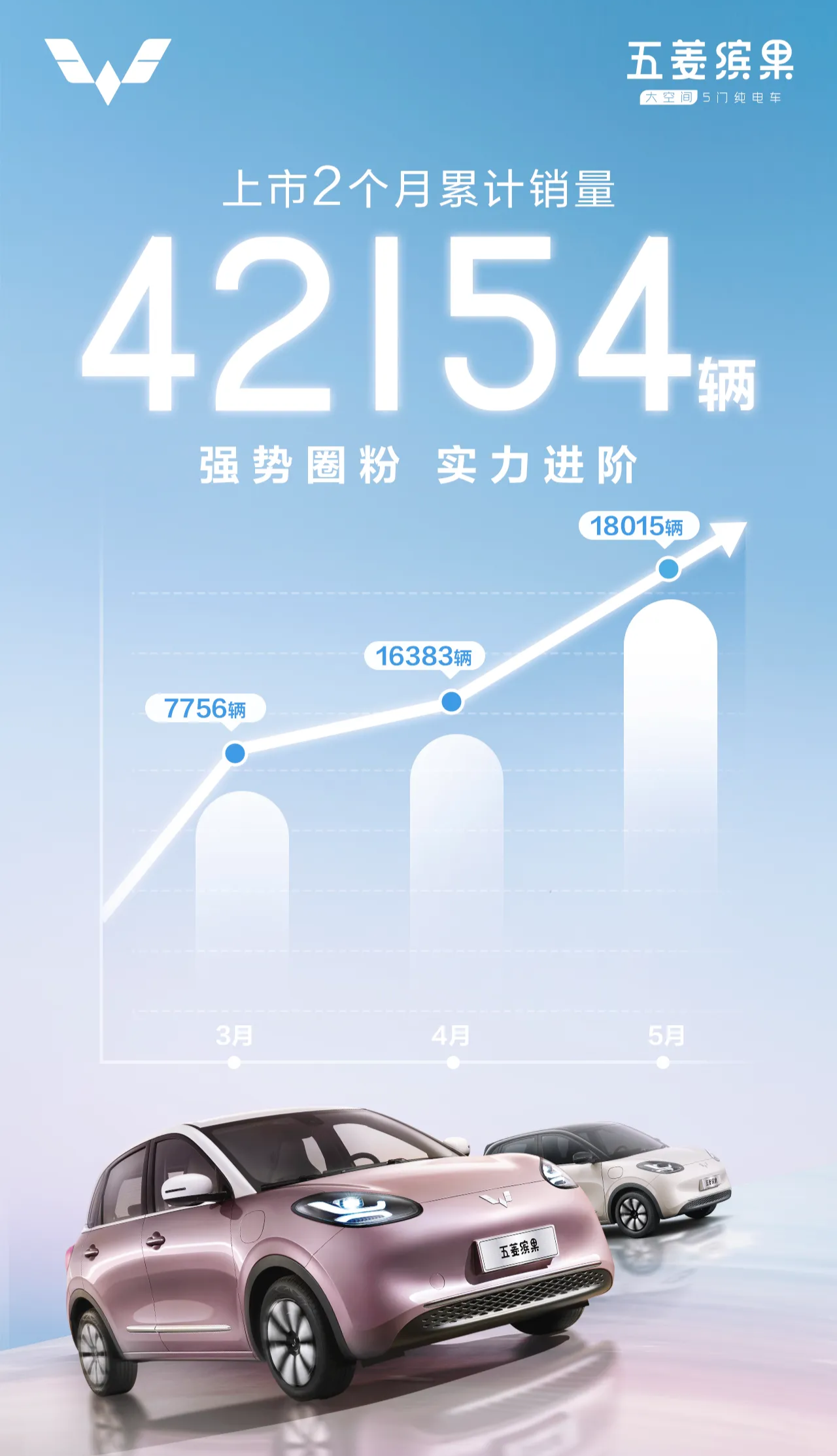

© 2024 AutoBeta.Net Tiger Media Company. All rights reserved.